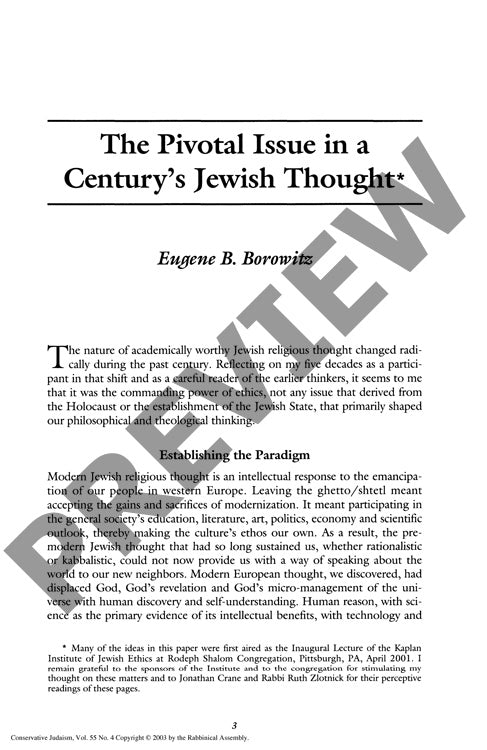The Pivotal Issue in a Centurys Jewish T
Couldn't load pickup availability
Ethics, not the Holocaust or Israeli statehood, fundamentally transformed modern Jewish religious thought over the past century. As Jewish communities emerged from traditional ghetto life into European modernity, their intellectual leaders faced an unprecedented challenge: how to preserve religious meaning while embracing contemporary philosophical frameworks. Early twentieth-century Jewish thinkers, deeply influenced by Kant and Hermann Cohen's neo-Kantian approach, positioned ethics as the cornerstone of modern Jewish religiosity, establishing what became known as the "religion of reason" paradigm. This ethical foundation weakened by mid-century as philosophical perspectives on human reason shifted and faith in human nature declined. While the Death-of-God movement briefly appeared to validate secular ethical Judaism, Jewish communities ultimately rejected this path in favor of spiritual renewal. Contemporary Jewish thought has since pivoted toward seeking religious foundations that support commanding ethics, evidenced through renewed interest in mysticism, Orthodox resurgence, and feminist Jewish theology. Historical analysis and philosophical inquiry reveal a striking paradox: modern Jews maintain steadfast commitment to ethical imperatives despite theoretical uncertainty about their foundations. This tension suggests future Jewish theology will likely embrace multiple religious intuitions rather than consolidate around a single paradigm.

More Information
-
Physical Description
-
Publication Information
Published 2003
ISBN
-
Publication Credits
Eugene Borowitz

